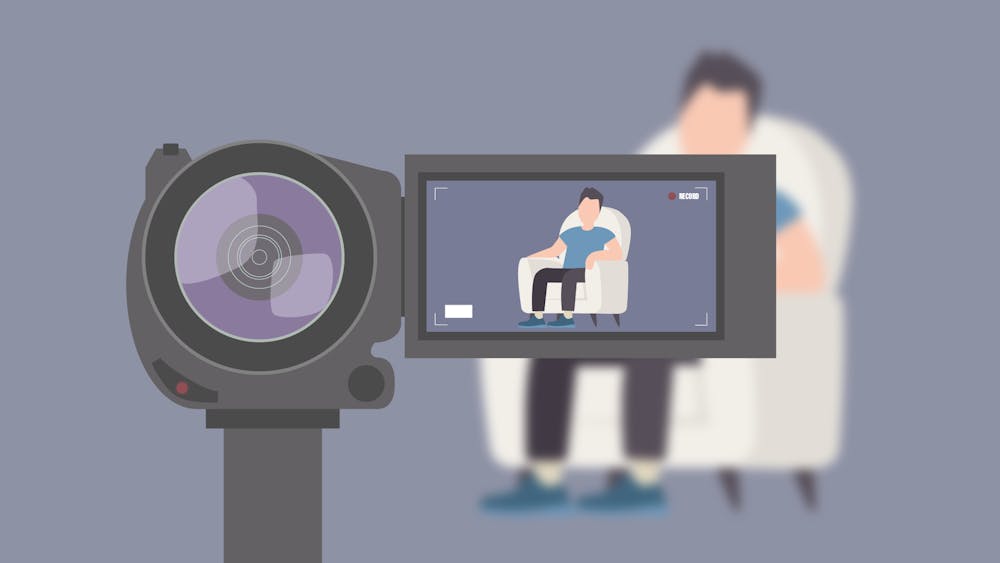What is a philosopher? Are they writing an academic paper from the comfort of a worn leather armchair in their roomy office? Or are they sitting upon a hill, gazing into the distance as they ponder the meaning of life? The philosopher has adopted many appearances and methods throughout different cultures. Today, the archetypal philosopher is seen as a middle–to–upper class, well–educated white man. However, the rise of modern philosophers is actively challenging this perception and bringing new issues to light.
The modern philosopher has a YouTube channel, Twitter account, Instagram page, and even a podcast. These new methods of delivering information allow for more creativity and mass reach, compared to the traditional, often boring format of a long academic paper.
In a YouTube video, a modern philosopher can have a myriad of graphics and jokes to ease the learning process. Depending on the philosophy channel, the topic in question can be explored with an extravagant theatrical flourish. YouTubers like Contrapoints and PhilosophyTube analyze concepts like opulence and capital punishment while wearing intricate theme–related costumes in front of moody, scenic sets—a stark departure from the format of traditional Western philosophy.
Perhaps the most important aspect of YouTube's philosophy side is its low barrier to entry. Anyone with a smartphone and internet connection can become a philosopher. This allows traditionally marginalized groups of people like LGBTQ+ people and BIPOC to enter the philosophy space and share their ideas and experiences.
Dante Diggs (W '22) is a fan of several philosophy YouTube Channels such as FD Signifier, a Black creator that often covers the Black experience and expression of masculinity, and Shanspeare, a Black creator that frequently covers the Black experience and expression of femininity and gender.
"I focus less on the video topics and more on the person who's making the video. Like FD Signifier, for example, and he writes a lot about like Black film and media, so I find that to be really fascinating [because he] analyzes things from more of a critical race theory lens," says Dante.
FD Signifier can take a unique perspective on issues like Black love and the evolution of hip hop because of his experience as a Black American. In traditional Western philosophy, Black philosophers are often underrepresented and cast aside. Additionally, in the teaching of philosophy in classrooms and lecture halls, students and teachers alike are majority white, creating spaces that aren't welcoming to the voices of people of color.
Dante says, "I don't feel like topics that relate to what I'm interested in in terms of critical race theory are explored in enough depth on any platform other than YouTube. I feel like it mostly has to do with the fact that [traditionally philosophy doesn't] spend a ton of time explaining these things… [or] how it relates to us."
Despite the new perspectives that modern philosophy offers, naysayers may argue that creators aren’t philosophers, but simply people with opinions. To conflate a philosopher and a person with an opinion is wrong and all too common. Philosophers use rigorous analysis to present a theory and rebuttal other theories. A person with opinions, simply argues on the basis of their different opinion and doesn’t have to prove why their opinion is reasonable or logical.
In traditional Western philosophy, journals, publishers, and other bodies of power make sure that the content is up to standard. But on platforms like YouTube, Twitter, Instagram, and more, there is no administrative body that determines if someone’s content is up to a robust standard—the viewers are in charge of checking facts and evaluating arguments.
“For me, [I focus on] the quality of the arguments. As long as the information can be fact–checked and there are places to read about it or [information] in spaces other than on YouTube, then I think it’s okay. I'm not gonna [necessarily] take the YouTuber's word. Obviously, there are some points [from] folks I disagree with and I think that's important… [These videos are] more of a jumping—off point to learn more,” says Dante.
With the power of viewers in mind, there are several unofficial checks and balances that keep content regulated. For instance, viewers like Dante can take the theory presented in the video with a grain of salt and conduct their own research. In turn, if viewers see the YouTube philosopher as illogical and unreasonable, then they will stop watching the philosopher's content.
Regardless, modern philosophers offer nuanced and marginalized perspectives to a host of recent and historic issues. Because of this, their diverse perspectives allow for growth in the space of philosophy and the expansion of the minds of viewers. It seems clear that YouTube isn't just a space for comedy videos and makeup tutorials—it's also a place for accessible intellectualism and philosophical thought.

